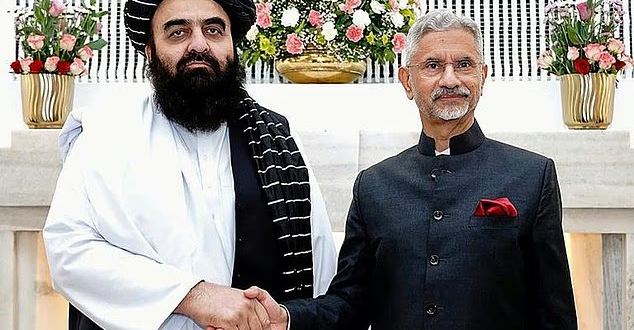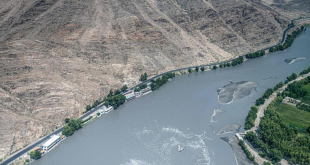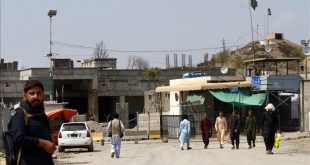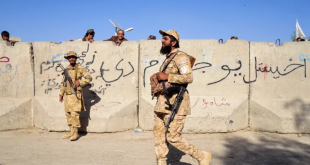KABUL – India’s growing engagement with Afghanistan’s Taliban government has provoked sharp anger in Pakistan, which accuses New Delhi of fuelling the deadly cross-border violence that has engulfed the region this month.
The diplomatic thaw between New Delhi and Kabul reached a new milestone on October 9 when Taliban Foreign Minister Amir Khan Muttaqi became the highest-ranking Taliban official to visit India since the group’s return to power in 2021. The visit, described by analysts as a calculated bid by India to rebuild influence in Afghanistan, has been viewed in Islamabad as a provocation at a time of heightened tension and open conflict.
Pakistan’s Prime Minister Shehbaz Sharif accused India of “inciting” the Taliban, while Defence Minister Khawaja Muhammad Asif branded Kabul a “proxy of India.” The accusations came as both nations traded deadly artillery fire and drone strikes along the border, leaving dozens dead and hundreds injured before a Qatar-mediated ceasefire was announced on October 19.
Islamabad maintains that the Taliban have sheltered the Pakistani Taliban (TTP) and other groups behind a surge of terror attacks that have killed over 100 security personnel and police officers in October alone. India, meanwhile, denies any involvement in Pakistan’s unrest, saying Islamabad is deflecting blame for its own domestic failures.
“The principal driver for Pakistan’s frustration with the Taliban is their refusal to rein in the TTP,” said former Pakistani diplomat Maleeha Lodhi, adding that the Taliban minister’s India visit was “an irritant, not the motivation” for Pakistan’s reprisals.
Analysts say India’s engagement with the Taliban marks a pragmatic shift aimed at countering Pakistan’s regional leverage. During his visit, Muttaqi expressed solidarity with India over an April terror attack in Kashmir, prompting outrage in Islamabad after a joint statement referred to the disputed region as “Jammu and Kashmir, India.”
The meeting concluded with India announcing plans to upgrade its mission in Kabul to a full embassy — a symbolic boost for the Taliban, who continue to seek formal international recognition.
“The India-Taliban rapprochement has given Kabul a crucial diplomatic win,” said Praveen Donthi of the International Crisis Group. “But it also risks entrenching the region’s old rivalries just as Pakistan and Afghanistan teeter on the brink of another conflict.”
The latest developments underscore how shifting alliances in South Asia are reshaping a fragile balance of power — with India and Pakistan once again on opposing sides of Afghanistan’s uncertain future.
 Afghanistan Times Latest News and Analysis from Afghanistan and the Region
Afghanistan Times Latest News and Analysis from Afghanistan and the Region




